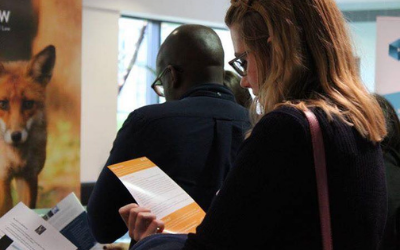By Dr Iyan Offor, Law Lecturer & member of A-LAW Scottish Steering Committee
Could Brexit provide the stimulus needed for the UK Government to implement mandatory method of production labelling for animal products (like it already does for eggs)? There is certainly hope, with ongoing consultations moving in a positive direction. On 25 March, the House of Commons International Trade Select Committee hosted a virtual evidence session (available on demand) with expert witnesses (Dr Iyan Offor (Strathclyde Centre for Environmental Law & Governance), David Bowles (RSPCA), Minette Batters (NFU), Peter Hardwick (British Meat Processors Association) to discuss food-labelling rules in relation to UK trade policy. This session formed part of the UK trade negotiations inquiry and relates to the Government’s recent commitment to undertake a ‘rapid review and consultation on the role of labelling to promote high standards and animal welfare’.
All experts were in agreement that labelling alone is insufficient to ensure UK standards of animal welfare are not put at risk by post-Brexit trade negotiations. Iyan Offor and David Bowles made clear that there were nonetheless great benefits to be gained from pursuing mandatory method of production labelling. For example, this could give consumers in the UK the ability to choose higher welfare products in the supermarket. This is currently impossible in many cases due to a lack of mandatory labelling. Labelling is effective at improving the market share of high welfare products, as has been demonstrated with mandatory method of production labelling for eggs.
The discussion is available in full at the link above. It covers the current legal frameworks in the UK for method of production labelling, how the UK’s ambitions compare to other countries, competencies of the devolved nations, the effectiveness of labelling as a means to impact consumer behaviour, the issues surrounding loose food and food services, and the compatibility of mandatory method of production labelling with the rules of the World Trade Organisation.







